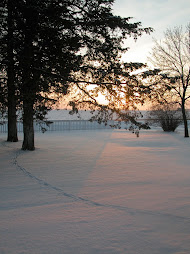When my sons drove off to college last fall, I considered my suddenly empty nest as sort of a reward, like a gold watch handed over for eighteen years of faithful service to motherhood. I client of mine at the time warned me not to get carried away over my newfound freedom. “They come back,” she warned. “You’ll be amazed at how often they’ll be home.”
Of course, she was right. The empty nest, at least during the college years, is a transition stage to be sure, if not a full-blown myth. These new adults, it seems, hold fast to their ties to the nest as they venture out on newly stretched wings.

In nature, one sees empty nests fashioned from twigs and views them not as a home to which one returns, but as a place no longer needed. In a tree, an empty nest symbolizes abandonment. A move out of such a nest could have been spurred by the life cycle or the weather; the cause is irrelevant because what’s left behind no longer serves as a home. It is simply a shell, an empty nest. Life has moved elsewhere. All ties have been severed.
There is evidence of similar abandonment having occurred throughout the rural countryside. In Iowa, and to a lesser degree in Minnesota, entire farmsteads stand empty, monuments to lives fallen on hard times. It’s quite sad to come upon an abandoned farmhouse with its peeling paint, broken windows, and sagging front porch, because you feel certain that its one-time occupants didn’t wing off to a warmer clime just because the days got shorter. These old buildings had been homes, nests to entire generations, and some have stood empty for years, maybe decades. These, these, dear ones, are the empty nests of our world, the sad symbol of final departure – death, if only of someone’s dream.
And so, what to make of the term we apply to home when our teens-turned-twenty-something have run off to play house in a dormitory or apartment or townhouse? What of the “empty nest?” Well, it’s not empty at all even if we wander from one tidy bedroom to another, remembering the days when toys and laundry littered the floor. For as long as our birdies can wing themselves back for a visit, we can call the nest what it is: home.






No comments:
Post a Comment